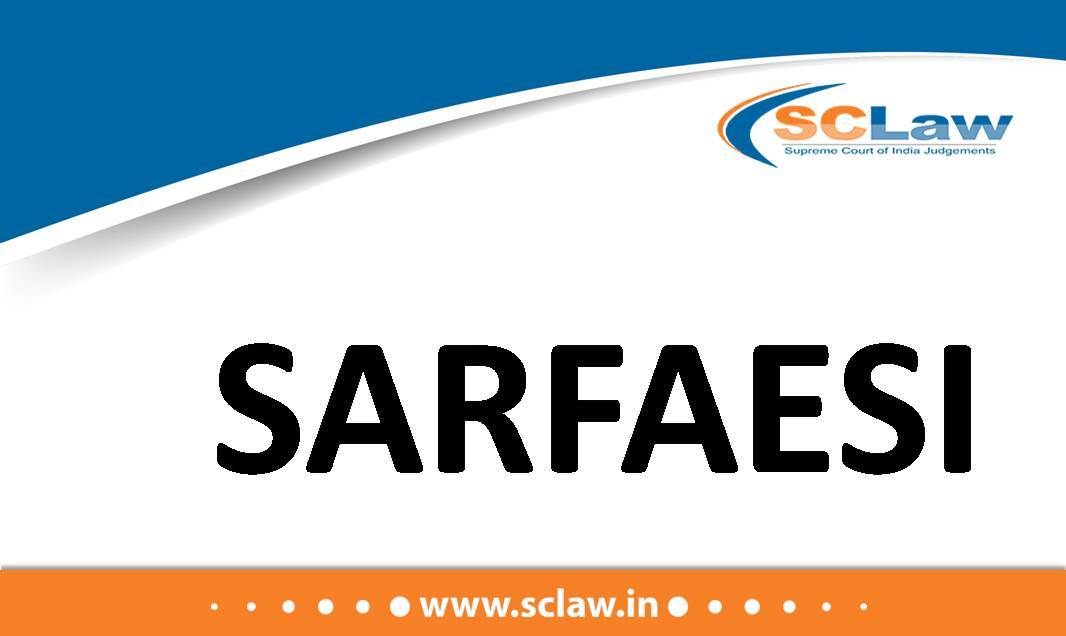University Grants Commission Act, 1956 – Issuance of writ of quo warranto to set aside the appointment of Vice Chancellor – Therefore, any appointment as a Vice Chancellor contrary to the provisions of the UGC Regulations can be said to be in violation of the statutory provisions, warranting a writ of quo warranto – This is a fit case to issue a writ of quo warranto and to quash and set aside the appointment of Vice Chancellor.
SUPREME COURT OF INDIA DIVISION BENCH GAMBHIRDAN K GADHVI — Appellant Vs. THE STATE OF GUJARAT AND OTHERS — Respondent ( Before : M.R. Shah and B.V. Nagarathna, JJ. )…
HELD instead of relegating the original applicants to approach the NCLT/Adjudicating Authority by moving an application under Section 12A of the IBC – This is a fit case to exercise powers under Article 142 of the Constitution of India as the settlement arrived at between the home buyers and the appellant and corporate debtor –company shall be in the larger interest of the home buyers
SUPREME COURT OF INDIA DIVISION BENCH AMIT KATYAL — Appellant Vs. MEERA AHUJA AND OTHERS — Respondent ( Before : M.R. Shah and B.V. Nagarathna, JJ. ) Civil Appeal No.…
Injunction may be granted even against the true owner of the property, only when the person seeking the relief is in lawful possession and enjoyment of the property and also legally entitled to be in possession, not to disposes him, except in due process of law.
SUPREME COURT OF INDIA DIVISION BENCH PADHIYAR PRAHLADJI CHENAJI (DECEASED) THROUGH L.R.S — Appellant Vs. MANIBEN JAGMALBHAI (DECEASED) THROUGH L.R.S AND OTHERS — Respondent ( Before : M.R. Shah and…
Wildlife (Protection) Act, 1972 – Section 36A – Direction of stoppage of mining activity in the vicinity of the elephant corridor – Dispute can be resolved by giving a direction to the State Government to implement the Comprehensive Wildlife Management Plan and complete the process of declaration of the traditional elephant corridor as conservation reserve as provided in Section 36A of the Act
SUPREME COURT OF INDIA DIVISION BENCH BINAY KUMAR DALEI AND OTHERS — Appellant Vs. STATE OF ODISHA AND OTHERS — Respondent ( Before : L. Nageswara Rao and B.R. Gavai,…
Punjab Package Deal Properties (Disposal) Act, 1976 – Sections 10, 15(1) and 18 – Public Auction – Setting aside of auction sale – not open for the High Court to sit like a Court of Appeal over the decision of the competent authority and particularly in the matters where the authority competent of floating the tender is the best judge of its requirements, therefore, the interference otherwise has to be very minimal
SUPREME COURT OF INDIA DIVISION BENCH STATE OF PUNJAB AND OTHERS — Appellant Vs. MEHAR DIN — Respondent ( Before : Ajay Rastogi and Abhay S. Oka, JJ. ) Civil…
No writ of mandamus could have been issued virtually granting the writ for specific performance of the contract/work order in a writ petition under Article 226 of the Constitution of India.
SUPREME COURT OF INDIA DIVISION BENCH MUNICIPAL COUNCIL GONDIA — Appellant Vs. DIVI WORKS AND SUPPLIERS, HUF AND OTHERS — Respondent ( Before : M. R. Shah and B.V. Nagarathna,…
(PIL) – When the subject matter was evidently a title claim between a private party and the State, No public interest litigation can be filed
SUPREME COURT OF INDIA FULL BENCH ESTEEM PROPERTIES PRIVATE LIMITED — Appellant Vs. CHETAN KAMBLE AND OTHERS — Respondent ( Before : N.V. Ramana, CJI., A.S. Bopanna and Hima Kohli,…
SARFAESI – Section 14(1A) – Taking of Possession of Secured Assets and Documents – Held, An advocate is and must be regarded as an officer of the court and subordinate to the CMM/DM for the purposes of Section 14(1A) of the 2002 Act – It is open to the District Magistrate (DM) or the Chief Metropolitan Magistrate (CMM) to appoint an advocate and authorise him/her to take possession of the secured assets and documents relating thereto
SUPREME COURT OF INDIA DIVISION BENCH NKGSB COOPERATIVE BANK LIMITED — Appellant Vs. SUBIR CHAKRAVARTY AND OTHERS — Respondent ( Before : A.M. Khanwilkar and C.T. Ravikumar, JJ. ) Civil…
National Investigation Agency Act, 2008 – Section 17 – Objective of Section 44, UAPA, Section 17, NIA Act, and Section 173(6) is to safeguard witnesses – They are in the nature of a statutory witness protection – On the court being satisfied that the disclosure of the address and name of the witness could endanger the family and the witness, such an order can be passed – They are also in the context of special provisions made for offences under special statutes.
SUPREME COURT OF INDIA DIVISION BENCH WAHEED-UR-REHMAN PARRA — Appellant Vs. UNION TERRITORY OF JAMMU AND KASHMIR — Respondent ( Before : Sanjay Kishan Kaul and M.M. Sundresh, JJ. )…
Motor Accident – Compensation – Enhancement of – Post accident – Pain, suffering and trauma suffered by the claimant cannot be compensated in terms of the money – However, still it will be a solace to award suitable compensation under different heads including the pain, shock and suffering, loss of amenities and happiness of life
SUPREME COURT OF INDIA DIVISION BENCH SRI BENSON GEORGE — Appellant Vs. RELIANCE GENERAL INSURANCE CO. LIMITED AND ANOTHER — Respondent ( Before : M.R. Shah and B.V. Nagarathna, JJ.…















